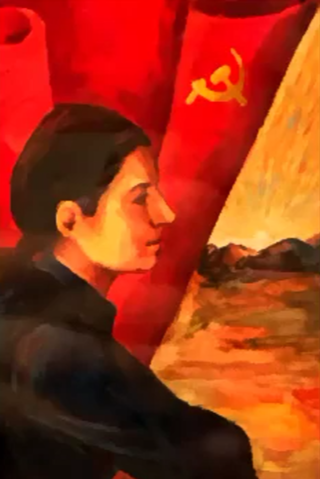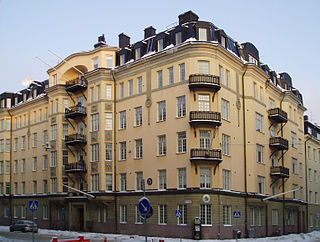
The Shining Path, self-named the Communist Party of Peru, is a far-left political party and guerrilla group in Peru, following Marxism–Leninism–Maoism and Gonzalo Thought. Academics often refer to the group as the Communist Party of Peru – Shining Path to distinguish it from other communist parties in Peru.

Manuel Rubén Abimael Guzmán Reynoso, also known by his nom de guerreChairman Gonzalo, was a Peruvian Maoist guerrilla leader and convicted terrorist. He founded the organization Communist Party of Peru – Shining Path (PCP-SL) in 1969 and led a rebellion against the Peruvian government until his capture by authorities on 12 September 1992. He was subsequently sentenced to life imprisonment for terrorism and treason.
Efraín Morote Best was a Peruvian lawyer, anthropologist, and academic administrator. From 1962 to 1968 he served as the Rector of San Cristóbal of Huamanga University in Ayacucho, Perú. He and three of his children became members of Shining Path.

María Elena Moyano Delgado was an Afro-Peruvian community organizer and feminist who was assassinated by the Shining Path. She grew up in poverty in the Villa El Salvador pueblo joven, then became involved in local activism. She was twice president of FEPOMUVES and at the time of her death was deputy mayor. Her funeral was attended by 300,000 people and resulted in a downturn in support for the Shining Path. She received the Peruvian Order of Merit posthumously.
La Cantuta massacre took place in Peru on 18 July 1992, during the presidency of Alberto Fujimori. Supposed members of Shining Path, including a university professor and nine students from Lima's La Cantuta University, were abducted, tortured, and killed by Grupo Colina, a military death squad. The incident occurred two days after the Shining Path's Tarata bombing, which killed over 40 people in Lima Province.

The Tarata bombing, known also as the Miraflores bombing or Lima bombing, was a terrorist attack carried out in Tarata Street, located in Miraflores District of Lima, Peru, on 16 July 1992, by the leftist Shining Path terrorist group. The blast was one of the deadliest Shining Path bombings during the Internal conflict in Peru and was part of a larger bombing campaign in the city during the last stage of the terrorism era.
The Grupo Colina was a military anti-communist death squad created in Peru that was active from October 1991 until November 1992, during the administration of president Alberto Fujimori. The group committed several human rights abuses, including an eight-month period of 1991–1992 that saw a total of 34 people killed in the Barrios Altos massacre, the Santa massacre, the Pativilca massacre, and the La Cantuta massacre.
Óscar Ramírez Durán, commonly known as Comrade Feliciano, is a Peruvian convicted terrorist and former political leader who led the Shining Path, a Marxist–Leninist–Maoist terrorist group in Peru, in the 1990s.

The Dancer Upstairs is a 2002 Spanish-American crime thriller film produced and directed by John Malkovich, and starring Javier Bardem, Juan Diego Botto and Laura Morante. The film is an adaptation of the 1995 novel The Dancer Upstairs by Nicholas Shakespeare, who also wrote the screenplay.

The Peruvian Civil War of 1980–2000 was an armed conflict between the Government of Peru and the Maoist guerilla group Shining Path and its remnants. The conflict began on 17 May 1980, and from 1982 to 1997 the Túpac Amaru Revolutionary Movement waged its own insurgency as a Marxist–Leninist rival to the Shining Path and ended in 2000.
The Lucanamarca massacre was a mass murder that took place in and around the town of Lucanamarca on 3 April 1983, by Sendero Luminoso rebels. The attack, which claimed the lives of 69 members of indigenous peasant families, was carried out by local cadre of the Shining Path in reprisal for a lynching death of its local commander.

Augusta Deyanira La Torre Carrasco, also known as Comrade Norah, was a Peruvian communist, recognized as the number two in command of Shining Path. La Torre's influence on her husband, Shining Path founder Abimael Guzmán, is credited with establishing equality for women with regard to participation within the revolutionary organization, and during its militant actions.

The blood quota is a concept developed by Abimael Guzmán, leader of the Shining Path, through which a communist militant must sacrifice their life for the world proletarian revolution. As part of the blood quota communist militants willfully promoted hatred and violence to attract adherents, instrumentalizing the masses in their favor and tolerating cruelty against their opponents to gain obedience, viewing violence as a necessary element on the path to communism and death as a heroic act. As such, it formed a core tenet of Gonzalo Thought.

Gonzalo Thought, also known as Marxism–Leninism–Maoism–Gonzalo Thought and Gonzaloism, is an ideological doctrine developed by Peruvian revolutionary Abimael Guzmán as an interpretation of Peruvian reality based on Marxism–Leninism–Maoism.
The Lost Decade or the Crisis of the 80s was a period of economic stagnation in Peru throughout the 1980s which was exacerbated to a severe macroeconomic crisis by the end of the decade. Foreign debt accumulation throughout Latin America, a series of natural disasters, mass public expenditures, nationalizations of banks and financial institutions, and the shutting of Peru out of international credit markets led to a decade of macroeconomic decline. The financial crisis soon became adopted into the public sphere through hyperinflation in commodities, food shortages, and mass unemployment. By the end of the decade, Peru's gross domestic product (GDP) contracted over 20%, and poverty rose to 55%.

The Militarized Communist Party of Peru is a political party and militant group in Peru that follows Marxism–Leninism–Maoism and participates in the communist insurgency in Peru. It is considered a terrorist organization by the government of Peru. The MPCP operates primarily in the VRAEM area and is involved in the area's coca production. Comrade José has been the leader of the MPCP since its official creation in 2018 after its final split from the declining Shining Path guerilla group.
Women in the Internal conflict in Peru were active in a large variety of roles, both making significant impacts on the Conflict and with the Conflict having significant impacts on them. Post-conflict women, especially Indigenous women, have played major roles in reconciliation efforts.

The Last Hour is a 2017 Peruvian crime drama thriller film written and directed by Eduardo Mendoza de Echave. It stars Pietro Sibille & Nidia Bermejo. It is based on real events and set at the beginning of the 1990s, a time of terrorism in Peru, specifically during Operation Victoria, which led to the capture of the terrorist leader Abimael Guzmán.

The 1992 Peruvian embassy attack in Stockholm was a terrorist attack and assassination attempt carried out by the Shining Path on the Peruvian embassy in the city of Stockholm, Sweden. It unsuccessfully targeted the Peruvian ambassador Gustavo Adolfo Silva Aranda.

The Peru People's Movement [Spanish: Movimiento Popular Peru,MPP] is a Marxist-Leninist-Maoist mass organization formed by members of the Shining Path to spread party propaganda abroad.













